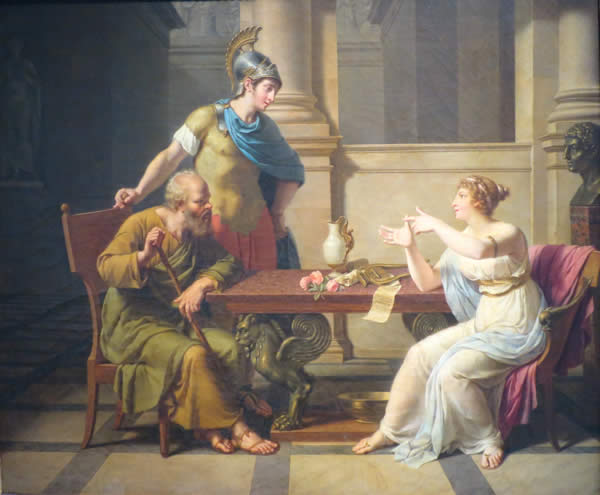[Author’s Note: Gentle Reader, if you were expecting to see the second half of the tale of The Keek-Stane, be of good cheer! We (the Keek-Stane and I) worked together with the full moon last night and I will be able to share more of the story with you next time!]
Where do the curious children go? It’s fine if, as a curious child, you are supported by loving family with a deep commitment to seeing its members grow and flourish in their best capacities. If you are this kind of lucky, you go to a school that challenges your intellectual capabilities, and are encouraged to explore other interests outside of your formal education. The doors to the world, in this regard, are open to this curious child.
I will not, therefore, worry about the children who are already supported in their quest to explore and discover the magick of life. My concern is with the student, like me, who had to struggle to find the path with limited support, both material and otherwise. Don’t get me wrong, my mom loved me very much and did her absolute best, for which I praise and thank her. But, there wasn’t enough money to afford the sort of school that would challenge the curious child and not enough time or money to explore those additional things outside our daily work and school duties.

It seems education these days is focused mostly on getting the students in and out, with attention focused on the lowest common denominator. There are programs for the slow learners, and whole separate schools for reformed “trouble makers.” But, again I ask, what happens to the curious child… before they get bored and start causing trouble?
I grew up in a strange era. Young women bombarded by media to arise and achieve like the men did. However, established thought was quite entrenched with the idea that a working class girl like me, should well, work. And so I did, from the time I was 14 onward.
College was a labyrinthine path over decades that yet continues. A personal quest, one unsupported by either time or money. They invented a new label for people like me: Lifetime Learner. Garden, career, family, love, all squeeze in between the hours I can get to explore a good reference book.
And before college, I spent many tender years going to the public library reading every classic I could find, thinking this would amount to a “Classical Education.” Wrong.
Then, too, there was my strange calling and fascination with the unseen worlds. My curiosity extended beyond the mundane exploration of the topic, I needed more, and scoured again our public libraries and, as time went on, the few magickal shops that began to appear in the community. I waited for decades hoping someone would invite me to train with them. Maybe they were waiting for me to ask… but in the meantime I built a good sized library of my own and worked it out in the garden, with the plants, my own particular passion.
My interests were and are copious and colorful~ a patchwork of curiosities. Odd little duck that I am, I had come to calling myself a Christo-Pagan hedgew…h – but really didn’t like that last part. Not completely comfortable with coming out of the broom closet enough to claim the scary title in public. Turns out the tradition of my bones is Pictish, Ray Buckland calls it Pecti-Wita, and it is very much solitary in practice. It took decades to find this, hunting as I was through haystacks for the needle that would sew it up for me.
Little did I realize that the magickal training and classical education I sought, were really the same thing and these needed to be reunited. Classical Education was originally developed in the ancient mystery schools of Pythagoras, Plato, Socrates and Aristotle, to teach magickal subjects to curious children.
More than that, it was a developed as a way to explore the ways we think about things in the first place. True Classical Education is magickal, but also secular, and scientific too. Teaching students to question and compare the various components of any idea or philosophy, bringing all these together to explore the mystery in practical, well-spoken, and logical ways.
Eventually my twisty path has led me to working on a project reuniting these for all the curious children everywhere. A lofty goal. By “today” I mean currently. And the “curious children” are seekers from 11 years and up. Everywhere is the whole wide world via the internet at Grey School of Wizardry.
Wizard. Not the other, somewhat scary w-word, because that other word is about a particular religion or tradition. This is secular, not religious, training the intellectual and spiritual explorers, the ones who quest for knowledge in a way that goes well beyond information in a book, and the ones young enough to still believe in wonder and the possibilities of…magick—available in every area of life. Mentally flexible enough to question preconceptions and accept wonder-filled answers. Strong enough to put those answers into practice and change their world for the better. Challenging enough to be fun.
This is my vision for magickal education, taught classically and without religion, except as comparative philosophy. Together we are working as a team at Grey School, developing and bringing this concept—pardon me—renewing this concept, that a well-rounded, classical education can be magickal too, and available for curious children everywhere.

Patheos Pagan on Facebook.

the Agora on Facebook
Adventures in Wortcunning is published bimonthly on alternate Fridays. Subscribe via RSS or e-mail.
Please use the links to the right to keep on top of activities here on the Agora as well as across the entire Patheos Pagan channel.

















